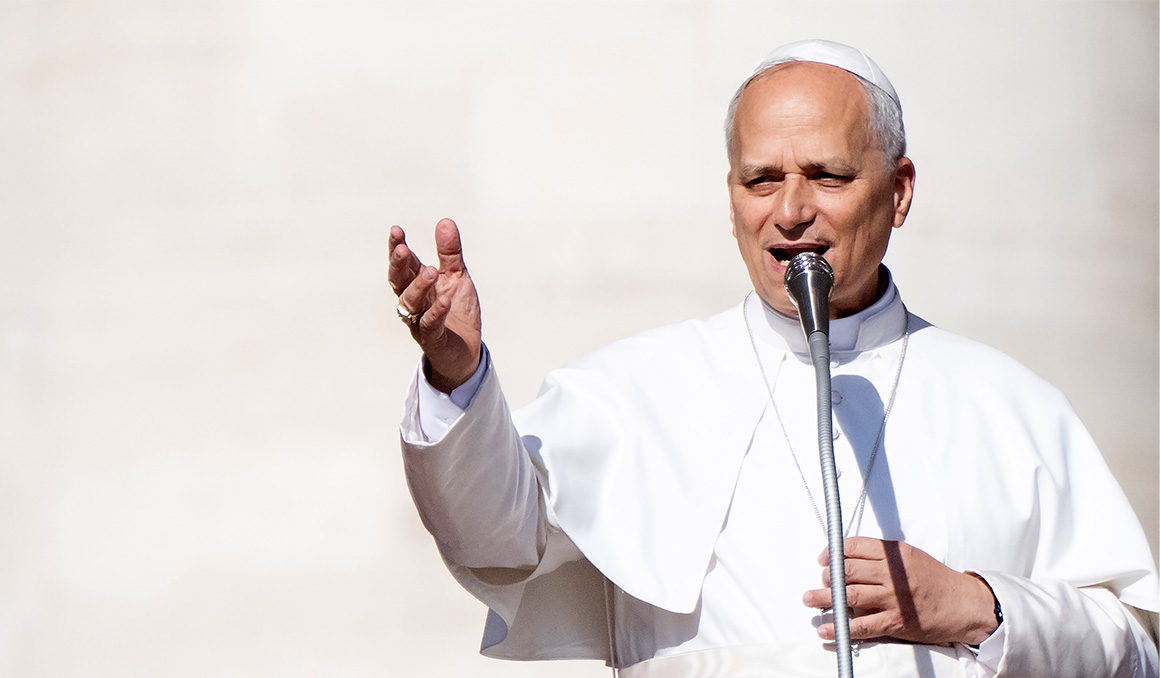During his Sept. 17 General Audience in St. Peter’s Square, Pope Leo XIV issued a renewed appeal for peace in the Gaza region, calling for an immediate ceasefire, the release of hostages, and a return to diplomatic negotiations grounded in international humanitarian law.
“I express my profound closeness to the Palestinian people in Gaza, who continue to live in fear and to survive in unacceptable conditions, forcibly displaced — once again — from their own lands,” he said.
The Pope’s remarks came amid a new Israeli ground operation in Gaza City, launched Sept. 16. The military campaign, aimed at targeting Hamas strongholds, has escalated the ongoing conflict and contributed to further civilian displacement, with many residents fleeing the area. Pope Leo has been in direct contact with Holy Family Catholic Church in Gaza and was informed that the parish is sheltering about 450 people and providing them with humanitarian aid amid the conflict.
Addressing the broader moral dimension, Pope Leo reminded listeners of the sanctity of every human life.
“Before God Almighty, who commanded ‘Thou shalt not kill,’ and in the sight of all of human history, every person always has an inviolable dignity, to be respected and upheld,” he said. “I renew my appeal for a ceasefire, the release of hostages, and a negotiated diplomatic solution, fully respecting international humanitarian law.”
The Pope’s appeal on the humanitarian crisis in Gaza followed a catechesis on Holy Saturday, which he described as a moment not of absence but of “expectation, a restrained fullness, a promise kept in the dark.”
Reflecting on Christ’s burial, he spoke of a “rest” that comes not from exhaustion but from love carried to its fullest extent. Holy Saturday, he noted, invites the faithful to recognize that even in stillness, God is at work.
“In the tomb,” the Pope said, “Jesus, the living Word of the Father, is silent. But it is precisely in that silence that the new life begins to ferment.”
He encouraged believers to embrace life’s pauses and uncertainties not as voids, but as fertile ground where hope can take root.
“[E]ven our ‘useless’ time, that of pauses, emptiness, barren moments, can become the womb of resurrection,” he said. “Every silence that is welcomed can be the premise of a new Word. Every suspended time can become a time of grace, if we offer it to God.”
>> Ambassador Burch discusses peace with Pope Leo, brings emblematic gifts of America

